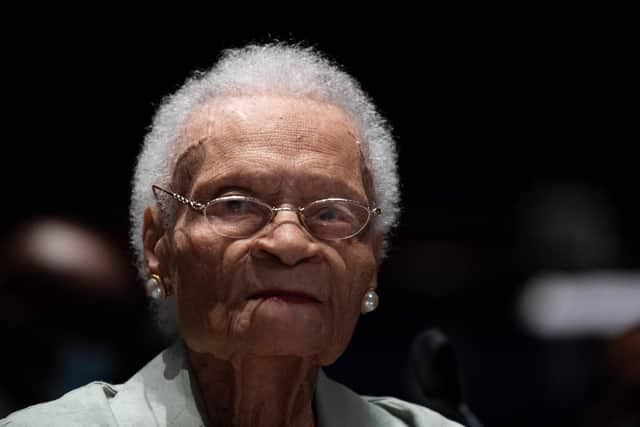Scots law professor hails breakthrough in historic race massacre court case
Eric Miller, from Glasgow, is part of the legal team representing three centenarians who were just young children when marauding white mobs killed hundreds of African Americans in the southern city of Tulsa and left thousands more homeless.
Aided and abetted by authorities, the gangs descended on the community of Greenwood, a prosperous African-American enclave known as ‘Black Wall Street’, before embarking on what Miller and his fellow lawyers described as “one o the worst acts of domestic terrorism in US history since slavery”.
Advertisement
Hide AdAdvertisement
Hide AdThe mobs shot black residents indiscriminately and burnt more than 1,200 homes to the ground, along with schools, churches, businesses, and a hospital. Those who survived were rounded up at gunpoint and placed in internment camps.
Now, more than a century after the 1921 Tulsa race massacre, a judge has ruled that a case brought by the only known living survivors - Lessie Benningfield Randle, 107, Viola Fletcher, 108, and 101 year-old Hughes Van Ellis - can proceed to what is known as discovery, a crucial pre-trial stage in US legal proceedings.
It will allow Miller, a professor of law at Loyola Law School in Los Angeles, and other members of the legal team to gather evidence and information to support their case, and, they hope, deliver justice for those who suffered.
The city of Tulsa and other authorities had attempted to dismiss the survivors’ claims that the massacre qualified as a public nuisance under Oklahoma law, but Caroline Wall, a judge at Oklahoma district court, ruled that the three survivors should be allowed to sue, stating that "a private person may maintain an action for a public nuisance if it is especially injurious to himself, but not otherwise".


Miller, who read law at the University of Edinburgh before heading to Harvard, said the court order was a landmark moment.
“This case is essentially 101 years old and even though we filed the public nuisance case just three years ago, for over 101 years, the survivors of the Tulsa race massacre have tried to move forward in court against the city, the county, and the sheriff,” he explained.
“This order is the first time that a survivor - in fact, three survivors - have managed to move to the merit stage of holding the city, the county, and the sheriff accountable for the massacre.
“That is significant progress over anything that’s happened over the last 101 years, and I’m just very pleased and proud to be part of a process that has got us this far - finally, to be able to be heard on the merits.”


Advertisement
Hide AdAdvertisement
Hide AdThe survivors’ lawyers had argued that the massacre also led to ongoing damages and inequalities felt to this day in Tulsa. While the judge dismissed those arguments, Miller urged people to put pressure on authorities in Tulsa to make amends.
“The city of Tulsa is engaged in fundraising exercises, and I think it behoves us all to demand that those funds are dispersed to the people of Tulsa, Greenwood, and the diaspora,” he added.
Comments
Want to join the conversation? Please or to comment on this article.
